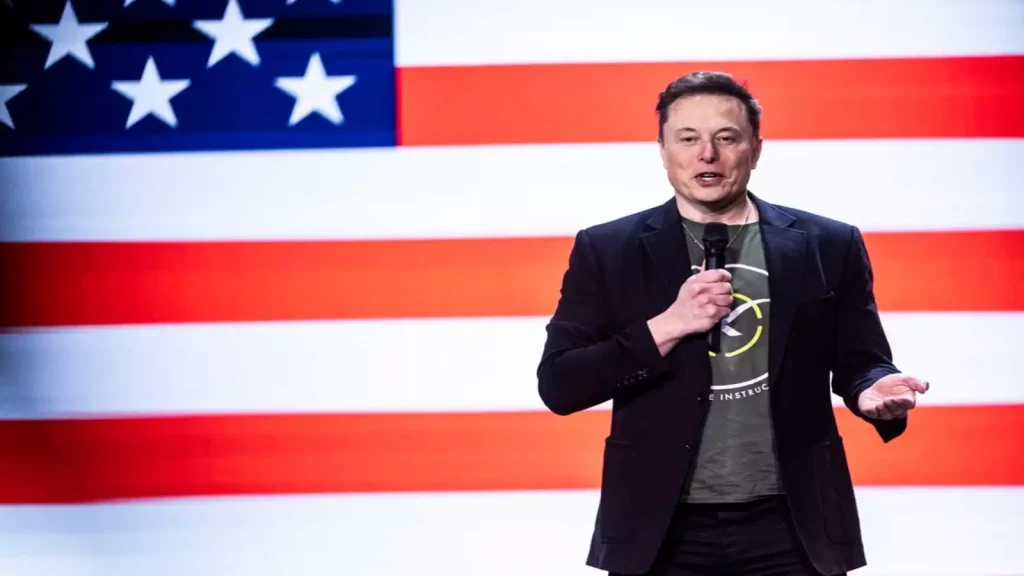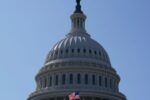A top Treasury official has recently announced his retirement following an alleged confrontation between his team and allies of Elon Musk, raising questions about the tension surrounding access to the Social Security payment system. David A. Lebryk, who had been serving in the role of acting secretary of the Treasury under President Donald Trump, confirmed his retirement in an email obtained by the Washington Post. The reasons for his departure have sparked a broader debate regarding the relationship between the private sector, government operations, and the security of critical payment systems.
The Confrontation and Alleged Demand for Access
Sources close to the situation claim that the issue leading to Lebryk’s exit revolved around an attempt by Musk’s allies to gain access to the Social Security payment system. The Social Security payment system, which handles a significant portion of the federal government’s financial operations, including the distribution of over $6 trillion annually to various groups such as Social Security recipients, Medicare beneficiaries, federal workers, and other eligible individuals, is one of the most secure and tightly controlled financial networks in the country.
Typically, only a small number of individuals with the highest levels of security clearance are granted access to these systems. This control is crucial to ensure the integrity and security of the federal payments, which include monthly distributions to millions of Americans.
Musk’s allies, reportedly part of the newly formed Department of Government Efficiency (DOGE), sought to access this highly sensitive network. The department, which Musk was named to assist in leading, was created through an executive order from the Trump administration. This order included a directive for “full and prompt access” to federal records and systems, with the intention of streamlining government processes and cutting down on unnecessary spending.
However, according to sources familiar with the situation, this request to access the Social Security payment system led to a significant confrontation. Lebryk and Musk’s team allegedly argued over the demand, with Lebryk reportedly expressing concerns about the security implications of allowing outsiders to access such critical financial systems.
The precise motivations behind Musk’s team seeking this access remain unclear. However, one possible explanation lies in Musk’s public stance on government inefficiency and wasteful spending. Through his role with DOGE, Musk has frequently stated his desire to reform the government’s financial operations, particularly focusing on cutting down unnecessary spending and bureaucracy. The request for access could have been a step toward implementing some of these reforms, but it also raised significant concerns about the risks associated with granting outside entities access to such sensitive infrastructure.
The Department of Government Efficiency (DOGE)
The Department of Government Efficiency, which Musk and Vivek Ramaswamy have been tasked with leading, was designed to be a temporary agency with the overarching goal of improving government efficiency. Musk’s involvement in the department stems from his long-standing position as a tech entrepreneur known for his innovation and interest in reducing waste. The department’s role in the Trump administration, as outlined in the executive order, includes the identification of areas within the government that could be streamlined or eliminated to reduce costs.
Despite its goals, the department has raised eyebrows among critics who question the scope of its authority, particularly regarding its push to access sensitive federal systems. This controversy comes at a time when the Trump administration has already been scrutinized for other actions, including its proposal to offer financial incentives for federal workers to resign. Some sources claimed that Musk’s influence played a role in this proposal, which was met with significant pushback from federal employees, many of whom rejected the offer outright.
Musk’s and Ramaswamy’s roles in DOGE reflect their desire to bring business-minded approaches to government operations, though critics argue that their focus on cost-cutting might overlook the importance of safeguarding public services, especially when it comes to crucial systems like Social Security and Medicare.
Lebryk’s Departure and Career Background
David A. Lebryk’s retirement marks the end of a lengthy and distinguished career at the U.S. Treasury. He spent over 30 years in various positions within the department, with his last role being the acting secretary. Lebryk had served under multiple secretaries of the Treasury and played key roles in various fiscal service operations, including serving as the commissioner of the Bureau of the Fiscal Service and acting director of the U.S. Mint.
His departure has raised concerns about the potential consequences of Musk’s influence within the Treasury and the broader government landscape. Lebryk’s long-standing commitment to maintaining the integrity of federal financial operations and protecting sensitive systems stands in stark contrast to Musk’s push for deregulation and streamlined processes.
Musk’s Influence and the Broader Debate on Government Reform
Elon Musk’s influence in the Trump administration has been a point of contention for many, especially as his ventures extend beyond the tech world into space exploration, artificial intelligence, and now government efficiency. His critics argue that Musk’s approach to government reform is too aggressive and risks undermining critical public services, while his supporters view him as a much-needed disruptor in a bloated and inefficient system.
Musk’s involvement with the Department of Government Efficiency and his push for access to the Social Security system are just two examples of his broader philosophy on government reform. While he has promised to use his expertise in technology and innovation to improve government services, the debate continues over whether his methods are too disruptive or if they represent a necessary shift toward modernization.
Concerns About Accessing Sensitive Government Systems
The controversy surrounding Musk’s allies’ request for access to the Social Security payment system brings to the forefront broader concerns about the security of sensitive government systems. Social Security and Medicare are not only financial lifelines for millions of Americans but also repositories of highly personal and confidential information. The notion that these systems could be accessed by outside actors, even for reform purposes, has many worried about potential breaches and misuse of sensitive data.
The idea of granting private-sector figures access to such important systems raises critical questions about the balance between efficiency and security. While some argue that more transparency and private-sector involvement could lead to better management of government resources, others fear that the risks to personal data and national security may outweigh the potential benefits.
The Future of the Department of Government Efficiency
As the Department of Government Efficiency continues to operate under the Trump administration, it remains to be seen whether it will achieve its goals of streamlining government processes and reducing waste. Some lawmakers have expressed concern that the department’s activities could result in job losses and harm public services, while others argue that reform is necessary to ensure that taxpayer money is being used effectively.
Musk’s role in DOGE will likely continue to be a source of controversy, particularly if his influence grows within the administration. His vision for the future of government services could have far-reaching implications for how public resources are allocated and managed. However, it is clear that his involvement in the administration will continue to spark debates about the role of private-sector leaders in public policy decisions.
Conclusion
David A. Lebryk’s retirement from the Treasury, following the dispute with Musk’s allies over access to the Social Security payment system, highlights the growing tensions between the private sector and government operations. As Musk’s role in the Department of Government Efficiency continues to evolve, it will be important to monitor the broader implications of his influence on federal financial systems and public services.
While Musk’s desire to reform government spending may resonate with some, others view his methods as overly aggressive and potentially damaging to critical services. The debate over the balance between efficiency, security, and corporate involvement in government will continue to shape the future of public policy and administration.
Disclaimer – Our editorial team has thoroughly fact-checked this article to ensure its accuracy and eliminate any potential misinformation. We are dedicated to upholding the highest standards of integrity in our content.





More Stories
Treasury Official Retires After Musk Allies Demand Access to Social Security System
Treasury Official Retires After Musk Allies Demand Access to Social Security System
Treasury Official Retires After Musk Allies Demand Access to Social Security System